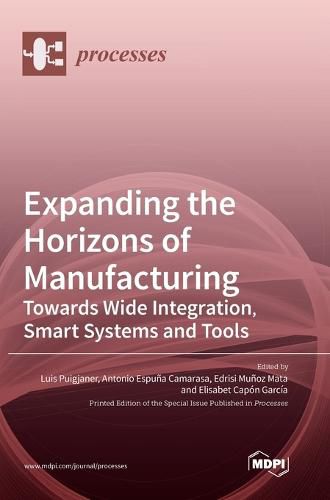Readings Newsletter
Become a Readings Member to make your shopping experience even easier.
Sign in or sign up for free!
You’re not far away from qualifying for FREE standard shipping within Australia
You’ve qualified for FREE standard shipping within Australia
The cart is loading…






This title is printed to order. This book may have been self-published. If so, we cannot guarantee the quality of the content. In the main most books will have gone through the editing process however some may not. We therefore suggest that you be aware of this before ordering this book. If in doubt check either the author or publisher’s details as we are unable to accept any returns unless they are faulty. Please contact us if you have any questions.
This research topic aims at enterprise-wide modeling and optimization (EWMO) through the development and application of integrated modeling, simulation and optimization methodologies, and computer-aided tools for reliable and sustainable improvement opportunities within the entire manufacturing network (raw materials, production plants, distribution, retailers, and customers) and its components. This integrated approach incorporates information from the local primary control and supervisory modules into the scheduling/planning formulation. That makes it possible to dynamically react to incidents that occur in the network components at the appropriate decision-making level, requiring fewer resources, emitting less waste, and allowing for better responsiveness in changing market requirements and operational variations, reducing cost, waste, energy consumption and environmental impact, and increasing the benefits. More recently, the exploitation of new technology integration, such as through semantic models in formal knowledge models, allows for the capture and utilization of domain knowledge, human knowledge, and expert knowledge toward comprehensive intelligent management. Otherwise, the development of advanced technologies and tools, such as cyber-physical systems, the Internet of Things, the Industrial Internet of Things, Artificial Intelligence, Big Data, Cloud Computing, Blockchain, etc., have captured the attention of manufacturing enterprises toward intelligent manufacturing systems. This Special Issue also calls for contributions from these advanced areas.
$9.00 standard shipping within Australia
FREE standard shipping within Australia for orders over $100.00
Express & International shipping calculated at checkout
This title is printed to order. This book may have been self-published. If so, we cannot guarantee the quality of the content. In the main most books will have gone through the editing process however some may not. We therefore suggest that you be aware of this before ordering this book. If in doubt check either the author or publisher’s details as we are unable to accept any returns unless they are faulty. Please contact us if you have any questions.
This research topic aims at enterprise-wide modeling and optimization (EWMO) through the development and application of integrated modeling, simulation and optimization methodologies, and computer-aided tools for reliable and sustainable improvement opportunities within the entire manufacturing network (raw materials, production plants, distribution, retailers, and customers) and its components. This integrated approach incorporates information from the local primary control and supervisory modules into the scheduling/planning formulation. That makes it possible to dynamically react to incidents that occur in the network components at the appropriate decision-making level, requiring fewer resources, emitting less waste, and allowing for better responsiveness in changing market requirements and operational variations, reducing cost, waste, energy consumption and environmental impact, and increasing the benefits. More recently, the exploitation of new technology integration, such as through semantic models in formal knowledge models, allows for the capture and utilization of domain knowledge, human knowledge, and expert knowledge toward comprehensive intelligent management. Otherwise, the development of advanced technologies and tools, such as cyber-physical systems, the Internet of Things, the Industrial Internet of Things, Artificial Intelligence, Big Data, Cloud Computing, Blockchain, etc., have captured the attention of manufacturing enterprises toward intelligent manufacturing systems. This Special Issue also calls for contributions from these advanced areas.